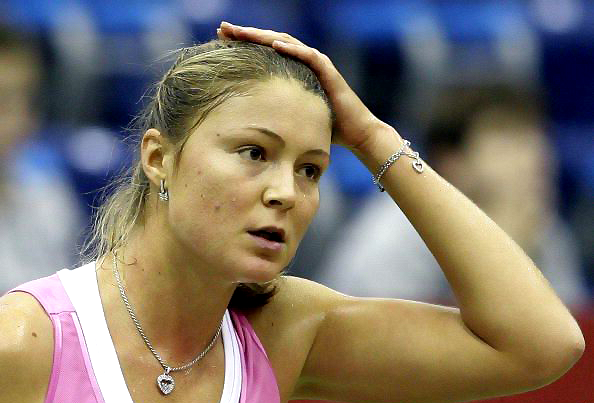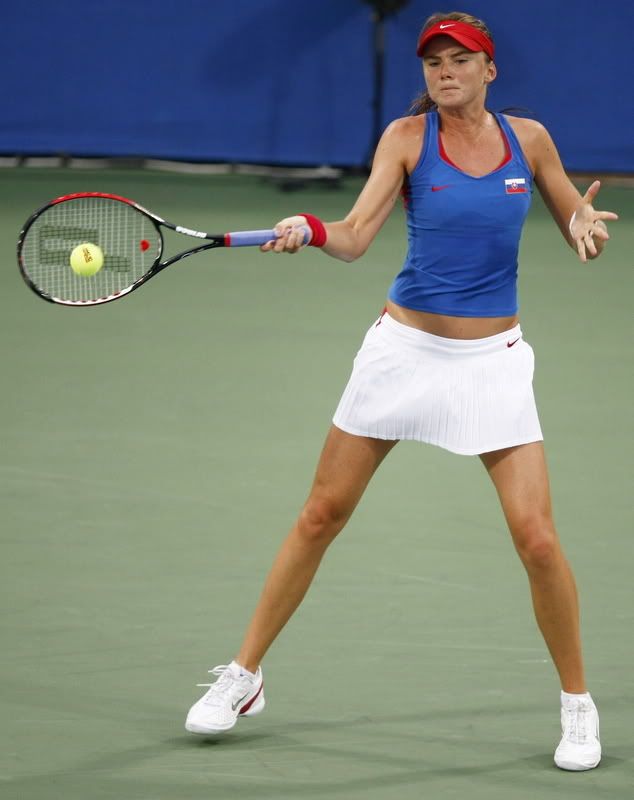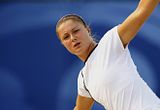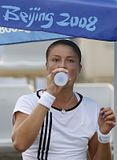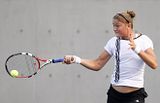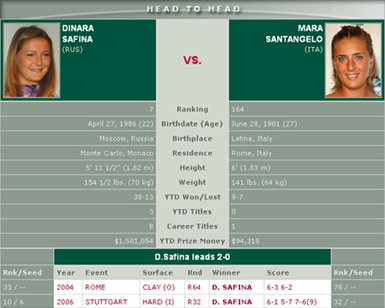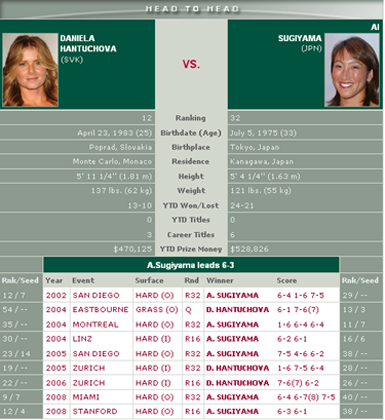Dinara Safina has been something of an under-achiever in the world of tennis during her career – that is until now. The younger sister of multiple Grand Slam champion Marat Safin is in a period of renewed confidence and looks finally to be turning her potential into actual results.
Safina had a slow start to the 2008 campaign with a first-round defeat in Australia and failing to get past the third round in major tournaments in the Middle East. The 22-year-old Russian had to wait until the European clay court season to show her ability, winning the prestigious Berlin Ladies Open by defeating former world No.1s Serena Williams and Justine Henin before overcoming Russian rival Elena Dementieva in the final.
A few weeks later Safina increased her momentum even further with her appearance in the French Open final at Roland Garros. She had huge wins over Maria Sharapova and Svetlana Kuznetsova and was even more impressive in the way she handled the pressure and had a determined look about her.
Her powerful groundstrokes and huge serve unfortunately did not allow her to win her first Grand Slam as Ana Ivanovic proved too strong. But at least Safina had reduced the number of double faults on her serve and her play seemed like that of a champion rather than a top-20 player, where she has been for most of her young career.
Safina needed a big tournament to really take her forward in her tennis career and her results since have shown that 2008 is the year she will gain success on a par with her brother’s achievements.
Safina played well on the grass, reaching her third successive tournament final of the year at ’s-Hertogenbosch in the Netherlands, before falling in the third round at Wimbledon to Israeli Shahar Peer. Many fans would have thought such a great run of form would have ended at this point and that she would have remained a decent top-20 player, but not this time.
Safina has shown great willpower at the start of the US hard court season, with tournament victories in Los Angeles and Montreal, defeating the likes of Jelena Jankovic, Kuznetsova and Victoria Azarenka on her way. She has set herself up nicely for a good shot at the Olympic title in Beijing and also the US Open in September.
She seems unafraid of the world’s best players and I think Safina could well challenge for the No.1 spot, which has been up for grabs since the retirement of Henin. She is less than 1,000 points behind the No.1 position and has earned 2,025 of her 2,800 ranking points this year over only the past couple of months, showing she is the most consistent player on the tour at the moment, and I can see her run of form continuing.
Safina has not got too many points to defend in the latter part of 2008 and very few in the beginning of next year so she really should be fighting for that top spot in the rankings and her new found mental toughness will help her to achieve this success.
For a long time Safina has failed to live up to expectations and Sharapova, Dementieva, Kuznetsova and Petrova have overshadowed the 22-year-old, but at last she looks like a girl on a mission – watch this space!
Source:Chris Goldsmith


